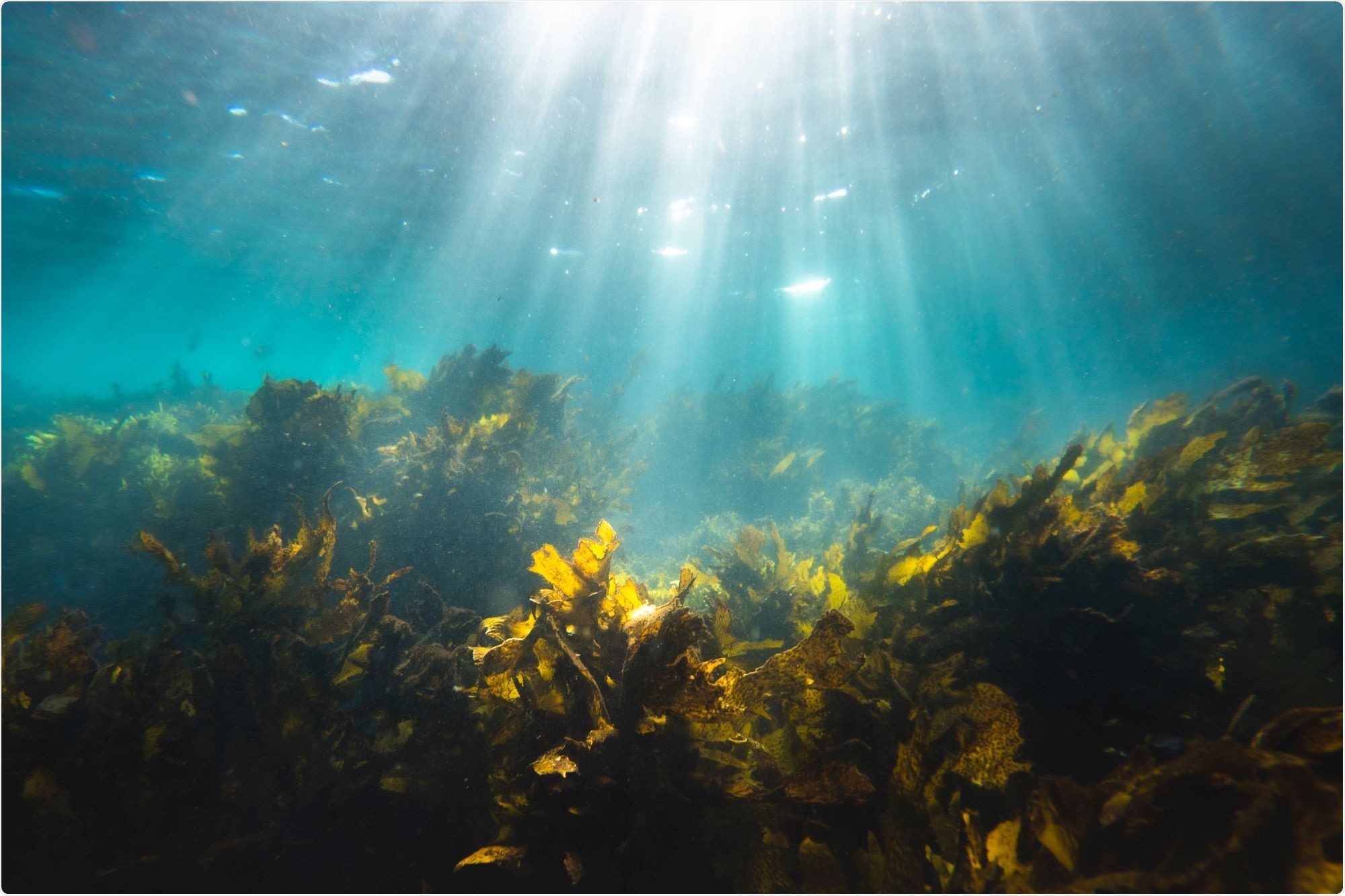According to recent research by the University of the West of Scotland (UWS), novel antiviral drugs—including Covid treatments—can be produced from earlier overlooked substances seen in marine plants.

Image Credit: University of the West of Scotland.
The research examined a set of substances known as marine sulfated polysaccharides—a kind of carbohydrate having sulfur—mostly seen in the cell walls of marine algae or seaweeds. The study demonstrated that nine of the substances analyzed showed promising results against Covid, with five of the substances reported more effective.
Identifying valuable biologically active compounds among marine plants throws considerable light on the significant role that marine life can carry out in creating efficient antiviral treatments, and a large amount of these ecosystems are yet to be analyzed.
Despite the advancement of vaccines as a protective measure, the emergence of newly evolved strains of Covid mean that its threat to public health continues, so finding other suitable treatments remains a priority. This is a very exciting discovery and shows great potential for these substances to be developed into effective medicines.”
Milan Radosavljevic, Professor and Vice Principal, Research Innovation and Engagement, University of the West of Scotland
Professor Radosavljevic also adds, “This study highlights our internationally-renowned research expertise, and I am proud of the commitment from our academics and their research students to find solutions to some of the world’s most urgent issues.”
I’m pleased to be involved in this research, which shows extremely positive results for the future development of antiviral drugs. Scientists often look to nature as a potential source for new drug discoveries: for example, the natural environment provided us with penicillin – the first naturally occurring antibiotic to be used therapeutically. Thanks to the development of this drug, various diseases caused by bacteria ceased to be life-threatening.”
Abdalla Mohamedsalih, PhD Student, School of Computing, Engineering and Physical Sciences, University of the West of Scotland
Abdalla Mohamedsalih adds, “I look forward to continuing this research, as we seek to find effective treatments for Covid.”
Scientists from the UWS examined earlier research works spanning 25 years and concentrated on those that referred to marine plant substances harboring some effect against various viruses. A shortlist was created with 45 substances exhibiting potential antiviral effects. These shortlisted substances were from different marine sources, including various kinds of microalgae, algae, squid cartilage, and sea cucumbers.
Computer-generated versions of these molecules were created along with the spike protein—the one covering the outside of the coronavirus. Through these computer models, scientists simulated how well each substance would attach to the spike protein. Molecular docking—the process of using computer simulations to test binding—is widely employed by researchers.
Nine substances of the shortlist revealed real promise as avenues for future development of therapeutic drugs.
Although the ocean has been looked to as a source for biologically active materials for many years, the marine environment is still largely under-investigated as far as medicines are concerned. Effective new antiviral drugs are critically needed for treating a wide range of diseases, including Covid, which continues to be a threat globally.”
Dr Mostafa Rateb, Lecturer, School of Computing Engineering and Physical Sciences, University of the West of Scotland
“This is a very interesting discovery and I look forward to seeing where these initial findings lead,” remarks Dr. Mostafa Rateb.
Discovering novel medicines appropriate for treating Covid and other viruses is the priority for scientists globally. They are striving hard to produce drugs that target life-threatening viruses and prevent them from developing in the body. As of now, only limited options are present for treating Covid, with only a handful of existing medicines accepted for use against the disease. Hence the focus is on identifying other suitable treatments.
The initial results from the current study show promise that marine plants have great potential for use as Covid inhibitors even though further experimental research works are needed.
Source:
Journal reference:
Salih, A. E. M., et al. (2021) Marine Sulfated Polysaccharides as Promising Antiviral Agents: A Comprehensive Report and Modeling Study Focusing on SARS CoV-2. Marine Drugs. doi.org/10.3390/md19080406.